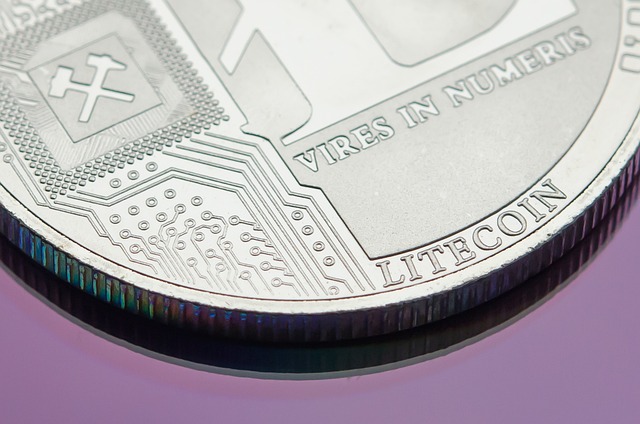Litecoin, often referred to as "silver" to Bitcoin's "gold," has enjoyed popularity since its 2011 launch due to fast transactions and low fees. However, it lacks advanced confidentiality features, impacting user privacy. MimbleWimble Extension Blocks (MW) offer a solution, enhancing Litecoin's privacy and fungibility by encrypting transaction data within blocks, making them untraceable while preserving the network's security and accessibility, key factors for wider adoption in the digital currency space.
Litecoin, a popular cryptocurrency, has gained attention for its speed and lower transaction fees compared to Bitcoin. However, concerns about privacy and fungibility persist. This article explores how MimbleWimble Extension Blocks (MEB) can revolutionize Litecoin by addressing these issues. MEB introduces an innovative approach to privacy protection and enhances the coin’s fungibility, making each Litecoin more difficult to trace. By understanding Litecoin’s current challenges and exploring MEB, we uncover a potential game-changer for the cryptocurrency’s future.
- Understanding Litecoin and Its Current Privacy Concerns
- Introduction to MimbleWimble Extension Blocks
- How Do Extension Blocks Improve Privacy?
- Enhancing Fungibility through Secure Transactions
Understanding Litecoin and Its Current Privacy Concerns

Litecoin, often referred to as the ‘silver to Bitcoin’s gold’, is a popular cryptocurrency that has gained significant traction since its launch in 2011. It was designed to offer faster transaction times and lower fees compared to its more well-known counterpart, making it an attractive option for everyday transactions. However, like many cryptocurrencies, Litecoin has faced privacy concerns. The underlying technology, based on blockchain, while transparent and secure, does not guarantee user anonymity. Every transaction is recorded on a public ledger, leaving users vulnerable to privacy breaches.
The current privacy issues in Litecoin stem from the lack of advanced confidentiality features. Transactions are identified by unique addresses, allowing anyone with access to the blockchain to track and analyze spending patterns. This transparency is beneficial for financial oversight but poses risks to user privacy. To address these concerns, developers have proposed and implemented solutions like MimbleWimble Extension Blocks, aiming to enhance Litecoin’s privacy while maintaining its efficient and fungible nature.
Introduction to MimbleWimble Extension Blocks

The introduction of MimbleWimble extension blocks has brought a significant evolution to Litecoin, focusing on enhancing its core features—privacy and fungibility. This innovative technology builds upon the existing Litecoin blockchain by introducing a new type of block structure designed to improve transaction confidentiality and prevent double-spending.
MimbleWimble’s unique approach allows for secure and private transactions without requiring complex proof-of-work mechanisms. By using a different consensus algorithm, these extension blocks enable users to create confidential transactions that are difficult to trace, thereby boosting Litecoin’s privacy capabilities. This feature is particularly appealing in the context of Litecoin’s long-standing focus on being a silver to Bitcoin’s gold, emphasizing accessibility and lower transaction fees.
How Do Extension Blocks Improve Privacy?

The MimbleWimble (MW) extension blocks introduced a game-changing approach to enhancing Litecoin’s (LTC) privacy and fungibility. Unlike traditional blockchain systems that rely on transaction transparency, MW employs a unique confirmatory process. Each block contains encrypted data, allowing users to conduct transactions without revealing specific details like amounts or addresses. This feature ensures that the LTC network remains anonymous, as it’s difficult to trace funds back to their original owners.
Furthermore, extension blocks improve privacy by providing a decentralized framework. With MW, transactions are confirmed through a proof-of-work mechanism, ensuring no central authority controls the validation process. This decentralization makes it challenging for malicious actors to manipulate network data, thereby safeguarding the overall privacy of LTC users and fostering a more secure digital currency environment.
Enhancing Fungibility through Secure Transactions

Litecoin, known for its fast transaction times and low fees, has always been a popular choice among cryptocurrency enthusiasts. However, enhancing its fungibility—the ability of tokens to be interchangeable without distinction—is crucial for its long-term success. This is where MimbleWimble Extension Blocks come into play.
By implementing these blocks, Litecoin can significantly improve the privacy and security of its transactions. Each block contains a set of transactions that are cryptographically linked, ensuring that funds cannot be traced back to their original owners. This feature not only bolsters the privacy of users but also increases the fungibility of Litecoin by making each coin indistinguishable from another. With secure and private transactions, more users will find comfort in adopting Litecoin as a viable digital currency for everyday use.
Litecoin, a popular cryptocurrency, has seen its privacy and fungibility face challenges. MimbleWimble Extension Blocks offer a promising solution by enhancing both aspects. This innovative technology introduces anonymous transactions, addressing concerns about user privacy. Moreover, it improves Litecoin’s fungibility by securing each transaction, ensuring no two coins are identical. By implementing these extension blocks, Litecoin takes a significant step towards becoming a more robust and private digital currency, appealing to users seeking enhanced security in their transactions.


Leave a Reply
You must be logged in to post a comment.